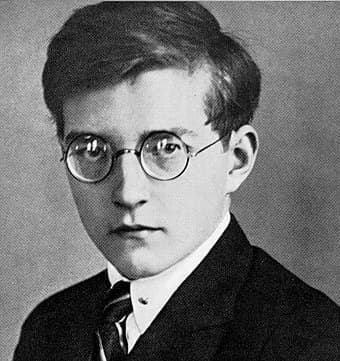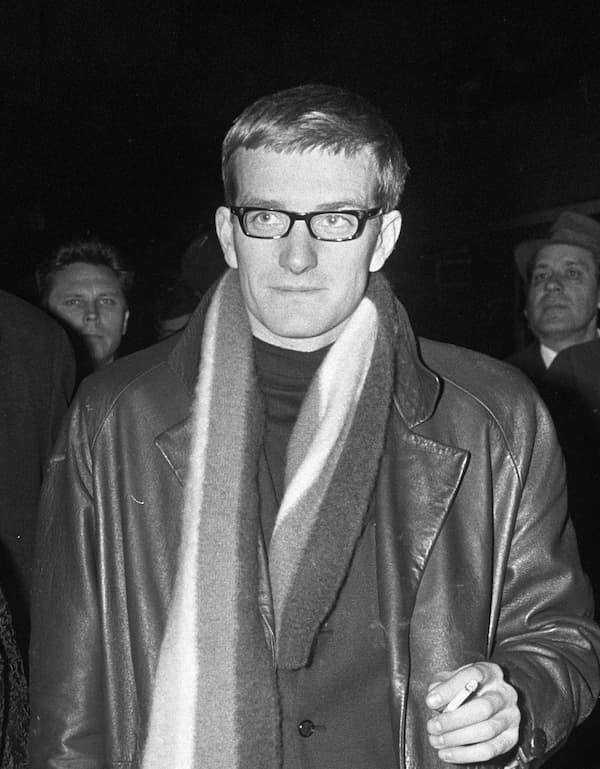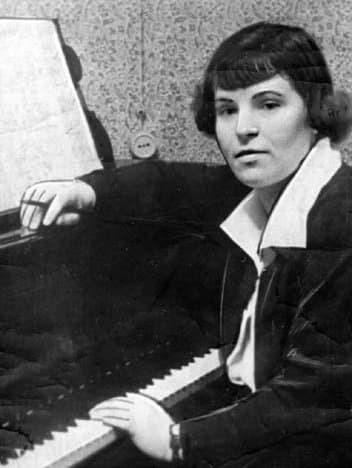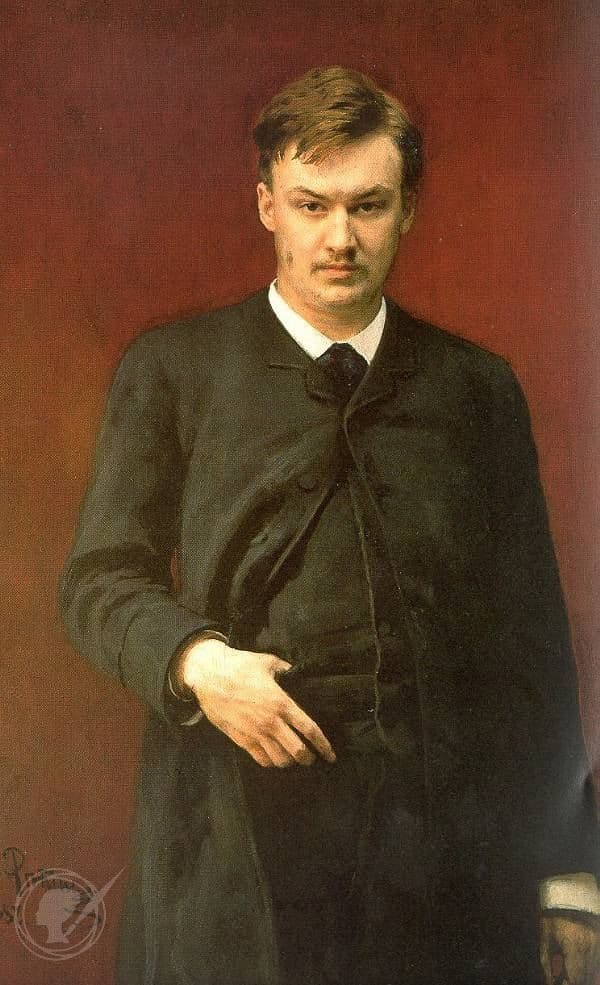During his life, Dimitri Shostakovich was, despite being a very public figure, a very private person. After his death in 1975, the publishing of many memoirs, letters, and diaries relating to his life by those who knew him have offered us a glimpse into the more intimate details of his career and world. In Shostakovich: A Life, Laurel E. Fay springs from the page a vision of a person and a life more complex than the “closet Soviet dissident” or “citizen-Communist” caricatures we are sometimes tempted to default to in trying to understand him. Here are five anecdotes from the book: some strange, others funny and surreal, others slightly tragic – and all very human.

Dimitri Shostakovich in 1925
1 – He wrote his Piano Concerto No. 2 in F major for his son, Maxim
Despite the concerto’s well-loved and oft-performed stature today, the week after he composed it, Shostakovich dismissed the composition in a letter to Denisov as “a work with no redeeming artistic merits.” In actuality, the piece had been written specifically for the purpose of helping his son, Maxim, to debut as a concert pianist with an orchestra. In his final year of study at Conservatoire, Maxim premiered the work on his nineteenth birthday, the 10th of May 1957, with the USSR Symphony Orchestra conducted by Nikolai Anosovin in Moscow. The premiere was received warmly by the audience, including the press, and whatever the composer’s own opinion of the work, it soon became a regular part of his own concert repertoire.

Maxim Shostakovich in 1967 © Wikipedia
Dimitri Shostakovich: Piano Concerto No. 2 in F Major, Op. 102 – II. Andante (Dimitri Shostakovich, piano; I Musici de Montréal; Maxim Shostakovich, cond.)
2 – One friend described him as “almost a catastrophe”
Mikhaíl Zoshchenko, writer and member of Shostakovich’s poker group in the 1930s, was once asked to describe Shostakovich to a fellow writer, Marietta Shaginyan, who had newly become intrigued by the composer and his work. His response makes out Shostakovich’s qualities and temperament to be erratic, contradictory, and yet combined miraculously in just such a way as to avoid disaster and allow him to produce great work. He writes:
It seemed to you that he is “frail, fragile, withdrawn, an infinitely direct, pure child.” That is so. But if it were only so, then great art (as with him) would never be obtained. He is exactly what you say he is, plus something else—he is hard, acid, extremely intelligent, strong perhaps, despotic and not altogether good-natured (although cerebrally good-natured).
That is the combination in which he must be seen. And then it may be possible to understand his art to some degree. In him, there are great contradictions. In him, one quality obliterates the other. It is conflict in the highest degree. It is almost a catastrophe.
3 – Galina Ustvolskaya turned down his marriage proposal

Galina Ustvolskaya © Wikipedia
Ustvolskaya, herself a talented composer, had once been Shostakovich’s student and had remained his close friend. In 1954, when Shostakovich lost his first wife, Nina Varzar, he worried greatly about his ability to raise his two teenage children, Galina and Maxim, without her. In a surge of desperation – or, perhaps, from a well of long-preserved feeling – Shostakovich proposed to Ustvolskaya and showered her with letters and attention. She refused, and Shostakovich found solace for his grief in his work instead.
4 – Shostakovich might not have studied composition at the St Petersburg Conservatory were it not for a fateful meeting with Alexander Glazunov

Alexander Glazunov
At the age of thirteen, Shostakovich – called by nickname ‘Mitya’ as a child by his family – was preparing to enroll in courses of both piano and composition at the St Petersburg Conservatory. His parents were worried about his desire to undertake both courses at once, and so as a courtesy to the family, famous pianist and conductor Alexander Siloti agreed to have Shostakovich perform at the piano for him. Siloti’s verdict was austere: “The youngster won’t make himself a career. He has no musical abilities. But of course, if he’s got the desire, why… no harm in letting him study.” Shostakovich purportedly cried all night after this encounter, and his parents took him to see the very Director of the Conservatory, composer Glazunov, for a second opinion.
Glazunov’s pronouncements were at the very other end of the spectrum of praise – he lauded the young Mitya as possessing a degree of talent as of yet unseen by the Conservatory, a gift of the calibre of Mozart. As such, Shostakovich enrolled to study both piano and composition at the Conservatory, just as he had hoped.
5 – He made a living as a cinema pianist during his student years
At the protest of his mother and sister, Shostakovich was forced to buoy his finances, limiting his time for piano practice and composition, by working as a pianist in various cinemas in both Moscow and St Petersburg. One employer was stingy, and Shostakovich was forced to sue him for the monthly stipend he was contractually owed. Playing the same music over and over was said to have irritated poor Shostakovich, and in one notable incident, when he flexed his creative muscles and improvised a fantastical fantaisie to illustrate the bird sounds he saw on-screen, the audience hooted, catcalled, and clapped. Shostakovich had assumed that the audience simply disliked the film, but in fact, his music had been the object of their ridicule – they had thought he was drunk!
For more of the best in classical music, sign up for our E-Newsletter




